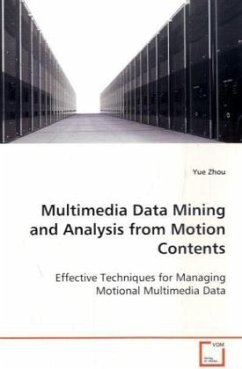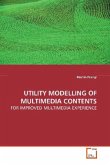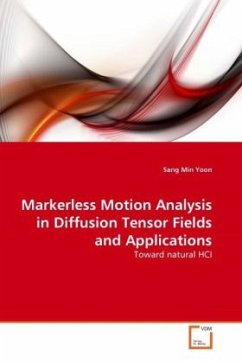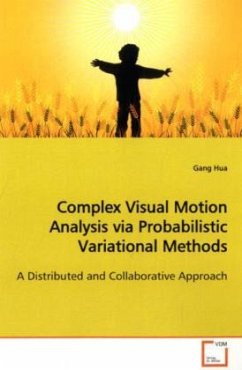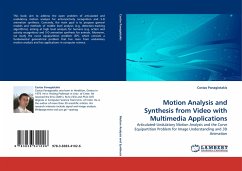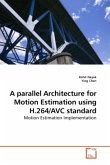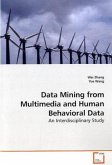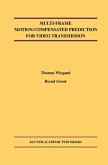Object motion in multimedia database contains
important information for data content analysis
especially event detection. The motion content in its
raw form is real-value multidimensional time series.
Processing and analyzing this kind of data is not
trivial since most standard machine learning
algorithms can only be applied to data in vector
space. In this work, we explore the techniques to
solve three problems related to motion cues in
multimedia databases: object motion estimation,
motion representation, and motion analysis to
recognize activities and events.
In this book we first discuss our work on object
detection and tracking, which estimate the object
motion. We then introduce our edit distance based
approach to measure the similarity between motion
trajectories in its raw form. We also present our
work on a novel trajectory representation framework,
"bag of segments," by which trajectories are
transformed to a frequency in vector space so that
most traditional machine learning algorithms can be
directly applied to the motion trajectory data.
Finally, we introduce our work on using the Granger
causality test to analyze multi-object interactions
from motion.
important information for data content analysis
especially event detection. The motion content in its
raw form is real-value multidimensional time series.
Processing and analyzing this kind of data is not
trivial since most standard machine learning
algorithms can only be applied to data in vector
space. In this work, we explore the techniques to
solve three problems related to motion cues in
multimedia databases: object motion estimation,
motion representation, and motion analysis to
recognize activities and events.
In this book we first discuss our work on object
detection and tracking, which estimate the object
motion. We then introduce our edit distance based
approach to measure the similarity between motion
trajectories in its raw form. We also present our
work on a novel trajectory representation framework,
"bag of segments," by which trajectories are
transformed to a frequency in vector space so that
most traditional machine learning algorithms can be
directly applied to the motion trajectory data.
Finally, we introduce our work on using the Granger
causality test to analyze multi-object interactions
from motion.

